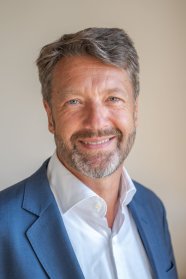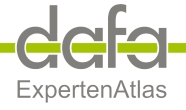About us – The Bavarian State Research Center for Agriculture
Food and drink and beautiful scenery – these basic needs of people are strongly connected with agriculture. Farm life and field work can be experienced by everyone and today the public observes closely all farm activities. As any other economic sector, agriculture depends on innovation and new technologies to remain competitive. Especially new technologies are often seen criticaly by citizens with no contact to rural life.
The LfL is an important companion for agriculture in Bavaria. On the following pages you will find all different kinds of information about our services and duties. We provide answers and solutions for questions about agriculture and farm management, environment and food production. Scientifically proven results form the basis for our work.
Flyer and further informations
The President
 Zoombild vorhanden
Zoombild vorhanden
President Stephan Sedlmayer
Chairmanship and Administrative Department
Board of Administration
The Administration Board is involved in fundamental decisions and supervises the work of the LfL. It gives advice on the five year LfL-work-program and the future strategy and appoints the members of the Scientific-Technical Board. The Administration Board has eight members. These are appointed from the Bavarian State Ministry of Food, Agriculture, Forestry and Tourism and hold an annual meeting.
Chairman
Ministerialdirektor Hubert Bittlmayer, Department Head of the Bavarian State Ministry of Food, Agriculture, Forestry and Tourism
Members
- Günther Felßner, President of the Bavarian Farmers' Association (BBV)
- Dr. Josef Krapf, independent business consultant
- Dipl.-Ing. (Univ.) M.Sc. Florian Loibl, Technical University of Munich – Weihenstephan, TUM
- Dr. Albert Schmid, MR Staatsministerium für Wissenschaft und Kunst
- Dr. Eric Veulliet, Hochschule Weihenstephan-Triesdorf/University of Applied Sciences
- MDirig. Ludwig Wanner, Bavarian State Ministry of Food, Agriculture, Forestry and Tourism
- MDirig. Robert Winkler, Bavarian State Ministry of the Environment and Consumer Protection
Management of the Administration Board
Dr. Monika Prasch, presidential office
Lange Point 12
85354 Freising
Tel.: +49 8161 8640-5806
E-Mail: Praesidialbuero@LfL.bayern.de
Scientific and Technological Advisory Committee
Chairman
Members
- Prof. Dr. Senthold Asseng
Director Hans-Eisenmann-Forum für Agrarwissenschaften - Josef Braun
Member of the managing state board of Bioland Bayern e.V. and of the overall board of LVÖ Bayern e.V. - Matthias Borst
Stellvertretender Generalsekretär des Bayerischen Bauernverbandes e.V. - Dr. Christiane Brunner
Chairman of VELA e.V, Amt für Ernährung, Landwirtschaft und Forsten Kitzingen-Würzburg - Jürgen Dietrich
Chairman Landeskuratorium für pflanzliche Erzeugung in Bayern e.V. - Dr. Bernd von Garmissen
Direktor der Landwirtschaftskammer Niedersachsen - Susanne Glasmann
Manager Arbeitsgemeinschaft der Bayerischen Ernährungswirtschaft e.V. (ABEW) - Josef Hefele
Chairman of the Landeskuratorium der Erzeugerringe für tierische Veredelung in Bayern e.V - Prof. Dr. Christoph Moning
Vice President University of Applied Sciences Weihenstephan-Triesdorf - Florian Hierl
Chairman of the Kuratorium Bayerischer Maschinenringe und Betriebshilfsringe e.V. - Dr. Eva Reinhard
Head of the Federal Department of Economic Affairs, Education and Research WBF Agroscope, Switzerland - Prof. Dr. Mathias Ritzmann
Lehrstuhl für Krankheiten des Schweines und Vorstand der Klinik für Schweine/LMU Munich - Prof. Dr. Christina Umstätter
Leiterin Institut für Agrartechnologie am Johann Heinrich von Thünen-Institut - Prof. Dr. Christian Weidner
President of the Bavarian State Office for Health and Food Safety
Management of the Scientific-Technical Board
Dr. Monika Prasch, presidential office
Lange Point 12
85354 Freising
Tel.: +49 8161 8640-5806
E-Mail: Praesidialbuero@LfLbayern.de
LfL-Research and work priorities
The institutes form the basis of the LfL, developing project-oriented solutions for the future. The operational program of the LfL provides guidelines for these purposes. The departments regard themselves as service providers which support the institutes to fulfill their plans and projects.
Additionally, they have clearly defined tasks in training and the implementation of EU and national guidelines and programs. The central departments contribute decisively to the successful work of the LfL by providing analyses and legally defined investigations.
Research and main work areas
With their five year work program, the institutes get the basic orientation for their research projects and main work areas. In the main areas with comprehensive challenges or issues, such as climate change, animal-friendly housing systems or biogas production, interdisciplinary work between institutes and departments is essential. Thus, farm managers can profit from the solutions and information available, considering all individual aspects of agriculture and the entire agricultural system.
Cooperation creates synergies
Deutsche Agrarforschungsallianz (DAFA)











